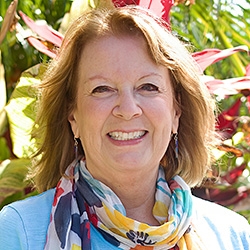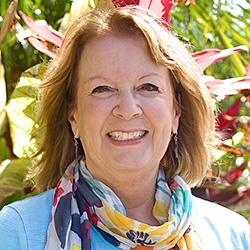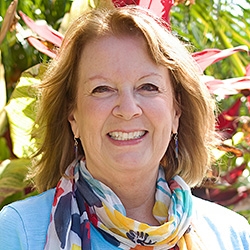

Search Results: connection
-
Trainer Tip: Whether we listen to our own or the other person’s needs first, connecting to needs can help us release judgments of others, see their humanness, help us to begin to hear them and ultimately connect to them. Be aware today of times when you are judging someone. Then be aware of your own needs to improve your connection to them.
-
John introduces his Self-Connection Exercise as a mindful way of coming to awareness via OFNR. Breath: immediately observable, a reminder to observe. Body: feeling the body, awareness of sensations. Needs: an experience of wholeness that expands awareness of the totality of experience. Listen.
-
Our craving for love, acceptance, and approval can lead us to show only parts of ourselves and hide others. This lack of authenticity breeds disconnection and mistrust, leading to those very needs not being met. Once I accept myself, being authentic is easier. And then people in my life can love me for who I really am, warts and all.
-
Trainer Tip: We can improve our relationships by focusing our attention first on connection instead of other stragegies.
-
Ask the Trainer: "In trainings I say our jackals are thoughts and now I've come to wonder if all thoughts are jackals...?"
-
Bring Buddhist principles to life through NVC and rediscover aliveness and mindful presence.
-
Who does not want to be understood? In Tip #6, Eric shows you how to deepen connection and trust by checking your understanding with the person you are conversing with.
-
Miki Kashtan helps you move past fear and build skill in making clear, confident requests.
-
Ask the Trainer: Exploring how unconscious motivations influence the needs we identify and express.
-
Do you want to increase your capacity to identify and connect with feelings and needs? Would you like to enhance your ability to translate judgments? Join Miki for this deep dive into feelings and needs.
-
Explore transforming prisons into healing spaces that build safety and community connection.
-
During this very moving session, you'll dive into Robert's exercises for supporting connection to your true self as opposed to your conditioned self.
-
Learn to ask for feedback by focusing on relationship quality before the request itself.
-
Connecting with self and other is key to care and creativity. Before dialogue connect with your intention and needs for being with grief, fear or pain, and empathy. Dialogue when you're both rested, fed, and have spaciousness. Start by expressing care and desire to find mutually satisfying solutions. To deepen connection you may repeat what you hear and ask the other person to do the same.
-
Discover a simpler way to ask “Would you tell me what you heard me say?” in NVC.
-
Explore three stages of transition and how connecting to needs brings grounding and clarity.
-
In times of conflict, it’s easy to lose touch with ourselves and our needs. In this heartfelt session, Jesse Wiens Chu shares three practical centering practices—rooted in the principles of Nonviolent Communication (NVC)—to help you find your way back to self-connection, empathy, and choice.
-
We're more likely to sacrifice trust, connection, and relationship quality when (1.) We use NVC to focus on being seen, understood, heard, or meeting our own needs in a way that eclipses our view and understanding of others needs; (2.) We don't clearly examine our intentions; and (3.) We use the NVC form so rigidly that it becomes difficult for others to connect with us authentically.
-
How can we express ourselves in a way that supports a natural flow of connection while maintaining a focus on NVC consciousness? This handout from CNVC Certified Trainer, Miki Kashtan, offers seven options that support NVC enthusiasts in evolving from classical to colloquial NVC language.
-
Ask the Trainer: Guidance for NVC groups on when and how to make requests, especially negative ones.
Quick Links

Stay in Touch!
We value your privacy, won't share your email address and you can easily unsubscribe any time.



















